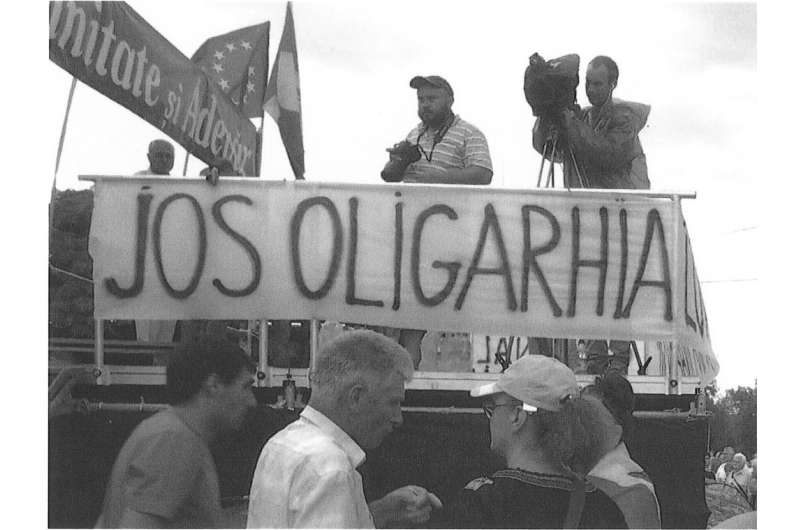More stringent conditions on democracy aid would enhance end results

International aid, aimed at enhancing democracy in hybrid regimes, risks being wasted, due to the incentives of the recipient incumbents. Donors should be alert to this, and attach more elaborate conditions to their project contributions. These are conclusions drawn in a recent doctoral dissertation from the University of Gothenburg.
Hybrid regimes are defined by Ketevan Bolkvadze, who has written the thesis, as states that have left the stage of autocracy and having basic democratic structures in place, but are not yet – what scholars would regard as – fully fledged democracies. A native from Georgia, now living in Sweden, her home country is together with Moldova the two states she has focused on in her study.
Her main finding is that in hybrid regimes, incentives for reforms differ according to the degree of political power fragmentation.
"In countries where one party dominates the political scene, incumbents try to channel resources for partisan ends. Whilst in systems with competing, but not so strong, parties, those in power will seek to divert funds for private enrichment", Ketevan Bolkvadze says.
A crucial issue in trying to understand the underlying mechanisms is the time horizon.
"Those in power in dominant party systems have a long time horizon. They might want to strengthen the state and its institutions, as long as they keep control over them.
"On the other hand, in hybrid regimes with more fragmented power, the politicians' time horizons are shorter. Here, the lack of party institutionalization implies that after losing power parties often disappear from the political scene. As a result of this unbounded uncertainty these politicians often seek to enrich themselves while they can, instead of investing in state institutions. After all, their own competitors could use these institutions against them 'the next day'", Ketevan Bolkvadze says
The net effect in both alternatives might be that the outcomes of the funds invested in enhancing democracy are not as effective as they could have been. Or, in worst cases, even counteract the intended aims.
In order to prevent that funds are diverted for wrong ends, Ketevan Bolkvadze recommends that donors attach more thoroughly designed conditions to their aid. And that they more in depth follow up on the results.
"I also believe donors should invest more in party institutionalization", Ketevan Bolkvadze says.
That would, according to her estimate, give positive results in both varieties of hybrid regimes.
"Strengthening opposition parties in dominant party regimes would give electorates real alternatives to vote for. And in fragmented regimes, funding that would guarantee that a small party survives losing an election, would increase the incentives for their politicians to invest in the party structure instead of enriching themselves", Ketevan Bolkvadze contests.
More information: Governing the Grey Zone: Why Hybrid Regimes in Europe's Eastern Neighborhood Pursue Partial Governance Reforms. gupea.ub.gu.se/handle/2077/54561
Provided by Göteborgs universitet


















